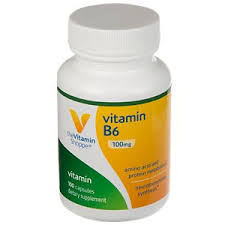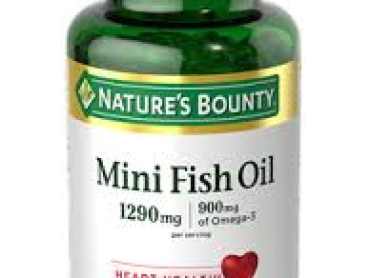Vitamin B6 Pyridoxine In Nairobi
75$
1. May Improve Mood and Reduce Symptoms of Depression
2. May Promote Brain Health and Reduce Alzheimer’s Risk
3. May Prevent and Treat Anemia by Aiding Hemoglobin Production
4. May Be Useful in Treating Symptoms of Premenstrual Sydrome
5. May Help Treat Nausea During Pregnancy
6. May Prevent Clogged Arteries and Reduce Heart Disease Risk
8. May Promote Eye Health and Prevent Eye Diseases
9. May Treat Inflammation Associated With Rheumatoid Arthritis
What are the benefits of Vitamin B6 Pyridoxine?
Vitamin B6 is also called Pyridoxine. Vitamin B6 Pyridoxine is an often overlooked but critically important nutrient that supports a wide range of life-essential functions in the body. This includes energy metabolism (the process of generating energy from food, nutrients or sunlight), normal nerve function, normal blood cell production, immune system maintenance, and a host of other vital processes .
In addition, research has shown Vitamin B6 helps in a number of other areas, such as reducing nausea during morning sickness, reducing PMS symptoms and even keeping the brain functioning normally .
The good news is that Vitamin B6 is available in a variety of foods, including fish, poultry, potatoes and non-citrus fruits . The not-so-good news is that people in the US may experience Vitamin B6 deficiency due to certain factors that impede absorption.
CDC’s Second Nutrition Report reported that an estimated 10.5% of the population is B6 deficient – that’s more than Iron, Vitamin D, Vitamin C and Folic Acid!
Certain genetic and kidney diseases can lead to deficiency. Vitamin B6 deficiency is often part of a deficiency of other B vitamins, like Vitamin B9 (Folic Acid, or Folate), and Vitamin B12.
Unlike Vitamin B2, B6 has a cap on maximum daily recommended dosage. The danger, however, is mostly around deficiency, with symptoms like anemia, depression, confusion and a weak immune system.
You need to make sure that Vitamin B6 is part of your diet. Even then, certain lifestyle conditions and genetic factors may require additional B6. We’ll dive into this further in the sections below.
But first, let’s get an overview of Vitamin B6 benefits.
What are some Vitamin B6 benefits?
May Improve Mood and Reduce Symptoms of Depression
2. May Promote Brain Health and Reduce Alzheimer’s Risk
3. May Prevent and Treat Anemia by Aiding Hemoglobin Production
4. May Be Useful in Treating Symptoms of Premenstrual Sydrome
5. May Help Treat Nausea During Pregnancy
6. May Prevent Clogged Arteries and Reduce Heart Disease Risk
8. May Promote Eye Health and Prevent Eye Diseases
9. May Treat Inflammation Associated With Rheumatoid Arthritis
How much need?
While it’s easy to fall back on general recommendations for Vitamin B6 dosages, your body and lifestyle are unique to you and you alone. How much B6 someone needs varies from person to person – so it’s important to take recommendations with a grain of salt.
For reference, health experts recommend the following : 1.3mg daily for men and women, 1.9mg for women who are pregnant, and 2mg for those that are lactating.
A varied diet (see What foods have Vitamin B6? below) usually has enough B6 to reach these levels, but it’s important to note that certain diseases, genetic conditions and lifestyle factors may require you to take different doses of Vitamin B6.
At Rootine, we provide an at-home DNA test when you first sign up for your personalized vitamin packets. Along with blood work and a lifestyle assessment, this test helps us gather important genetic information that clues us into how much daily Vitamin B6 you actually need.
What happens if you’re deficient in Vitamin B6 Pyridoxine?
Given that Vitamin B6 is so important for so many vital processes, lacking B6 impacts many of your body’s functions.
People who are deficient experience anemia, cheilosis (cracks on the corners of your mouth and scaling on your lips), depression (tied to the fact that Vitamin B6 helps your body make serotonin), a weaker immune system, and other unpleasant symptoms.
But what happens if you overdose on Vitamin B6?
What if you take too much?
Like the other B vitamins, B6 is water soluble – while the body can absorb large amounts of the nutrient, it can quickly eliminate most of it when you head to the bathroom.
But unlike Vitamin B2, B6 does have upper intake levels according to several international government reports. Doses of 1-6g per day for over a year have caused nerve damage, manifesting in loss of control over movement .
Taking too much Vitamin B6 can also have the following side effects: disfiguring skin lesions, heartburn, nausea and numbness .
It goes without saying, avoid taking absurdly high doses of Vitamin B6!
What foods have Vitamin B6 Pyridoxine?
Meat, fruit and vegetables are all foods high in Vitamin B6 , so everyone from the most voracious meat eater to the strictest vegan can get an adequate source of B6 from their diet – granted there aren’t any quirks in their genetic makeup.
A few examples of foods containing Vitamin B6:
1) One cup of canned chickpeas has 1.1mg of Vitamin B6.
2) Three ounces of cooked tuna has 0.9mg.
3) One roasted chicken breast (three ounces) has 0.5mg.
4) One cup of boiled potatoes has 0.4mg.









